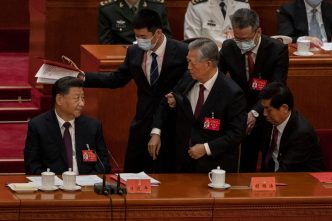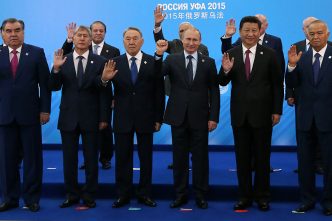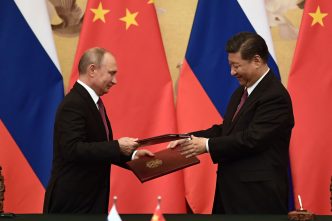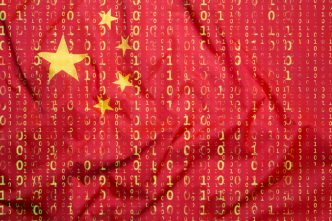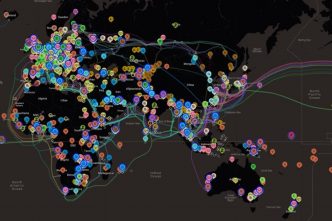Originally published 14 October 2022. Rumours that President Xi Jinping was under house arrest amid a military coup in China—apparently driven by Falun Gong–linked social media accounts known for spreading factually problematic information—spread widely in …
On Saturday, former Chinese Communist Party general secretary Hu Jintao was dramatically removed from the Great Hall of the People in Beijing, as the 20th party congress came to a close. Footage of the closing …
Rumours that President Xi Jinping was under house arrest amid a military coup in China—apparently driven by Falun Gong–linked social media accounts known for spreading factually problematic information—spread widely in late September. The available facts …
The Western media will focus its coverage of the Shanghai Cooperation Organisation summit beginning today in Uzbekistan on the dynamic between three of the most powerful leaders in the world—Chinese President Xi Jinping, Indian Prime …
Nancy Pelosi, the speaker of the US House of Representatives, is leading a congressional delegation on a tour of the Indo-Pacific. The world is waiting to see whether she will visit Taiwan, with some reports …
The deterioration in the global economic outlook in the face of multiple crises—including rising inflation, the war in Ukraine and autocratic belligerence, along with the requirement for urgent action to address the systemic threat of …
A new ASPI report demonstrates that in the early days of Russia’s invasion of Ukraine, social media posts by Chinese diplomats on US-owned platforms almost exclusively blamed the US, NATO and the West for the …
Technology policy formulation has gained a renewed importance for governments in the era of strategic competition, but contextual understanding and expertise in deciding where to focus efforts are lacking. As a result, it’s difficult to …
On 1 September, new regulations will come into effect in China that tighten the requirements for reporting security vulnerabilities in network products (pertaining to ‘weaknesses or flaws’ in ‘software, hardware, or organizational processes’) to the …
Mapping China’s Technology Giants is a multi-year project by ASPI’s International Cyber Policy Centre that tracks the overseas expansion of key Chinese technology companies. This data-driven project, and the accompanying database and research products, fill …
Globally, there’s increasing interest in the development of central bank digital currencies, driven by a wide range of policy motivations. A survey published by the Bank for International Settlements in January 2020 found that, out …
The Chinese party-state’s technology-enhanced authoritarianism is expanding globally. But the way it’s doing it isn’t always distinctly coercive or overtly invasive. While there’s been an important focus on technologies such as 5G, surveillance and cyber-enabled …



